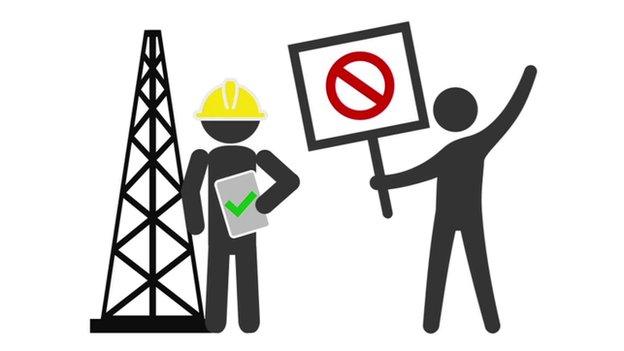Fracking in Lancashire given go-ahead by government
- Published
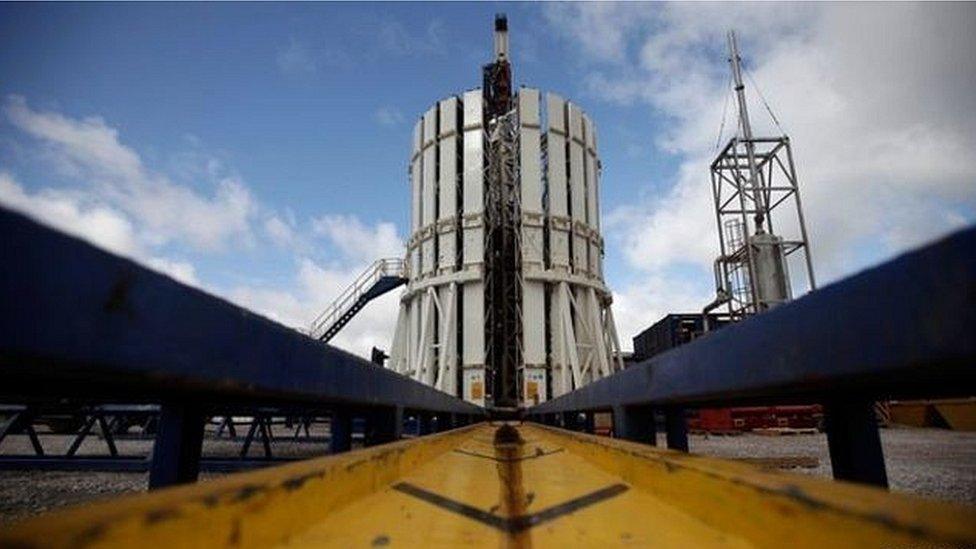
UK shale rock will be fracked horizontally, which is expected to yield more gas
Horizontal fracking can go ahead, the government has said, in a landmark ruling for the UK shale gas industry.
Communities Secretary Sajid Javid has approved plans for fracking at Cuadrilla's Preston New Road site at Little Plumpton in Lancashire.
Environmentalists and local campaign groups reacted angrily, saying it was a denial of local democracy.
It means, for the first time, UK shale rock will be fracked horizontally, which is expected to yield more gas.
A second site, Roseacre Wood, has not yet been given the green light amid concerns over the impact on the area.
What is it like living near fracking?
The decision will 'ruin our lives'
Does fracking affect the water supply?
Lancashire County Council (LCC) refused permission to extract shale gas at both sites last year on the grounds of noise and traffic impact, but Cuadrilla appealed.
In response to the decision, LCC has called on the government to do more to address people's concerns about fracking.
"It is clear the government supports the development of a shale gas industry, but I would ask them to do more to address the concerns of local communities and the councillors who represent them by supporting the best environmental controls," it said.
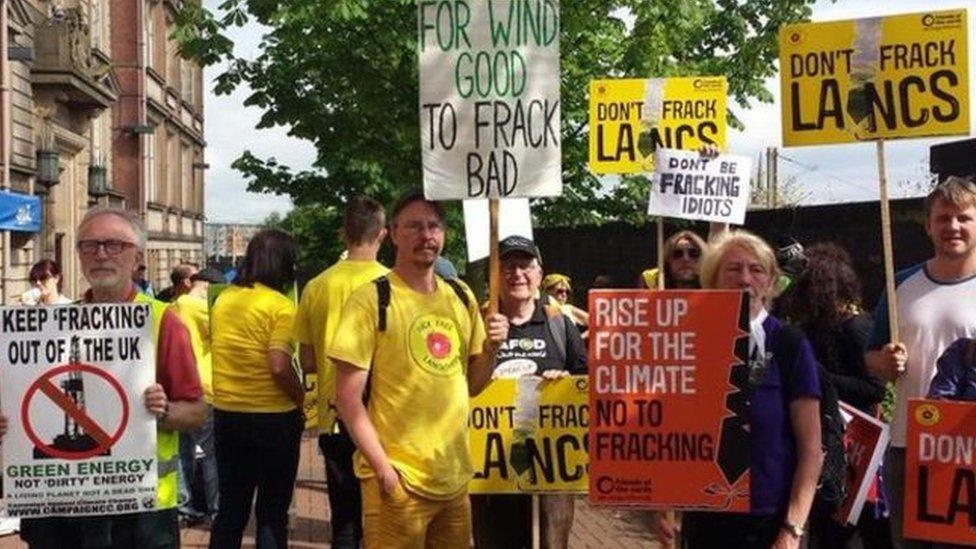
Anti-fracking protests were held when the county council debated Cuadrilla's plans in June
Cuadrilla chief executive Francis Egan said: "We have been through an exhaustive environmental impact assessment on this.
"We have assessed everything; noise, traffic, water, emissions, etc.
"The Environment Agency are entirely comfortable with it."
'What right have they got to ruin our lives?' says Roseacre Wood resident
Mr Javid said the shale gas industry would support thousands of jobs and reduce the UK's reliance on energy imports.
"When it comes to the financial benefits of shale, our plans mean local communities benefit first," he said.
Responding to the ruling Councillor Judith Blake, from the Local Government Association, said: "It should be up to local communities to decide, through their locally democratic planning systems, whether or not to host fracking operations in their areas."
She said residents' safety concerns should be "adequately addressed".
"People living near fracking sites - who are most affected by them - have a right to be heard," said Councillor Blake.
'Fight to continue'
Friends of the Earth campaigner Pollyanna Steiner said: "Fracking goes against everything we need to do to tackle climate change.
"The government must end its fixation with dirty fossil fuels and focus instead on harnessing the UK's huge renewable energy resource."
Pam Foster, co-founder of Residents Action on Fylde Fracking, said: "This is a total denial of democracy. Our parish council, our borough council, our county council all threw out this application.
"We have pursued every democratic channel we can do, there's nothing left for us. We're pretty disgusted and very upset."
How fracking will take place in Lancashire
She said the campaigners would continue to fight fracking "peacefully and legally".
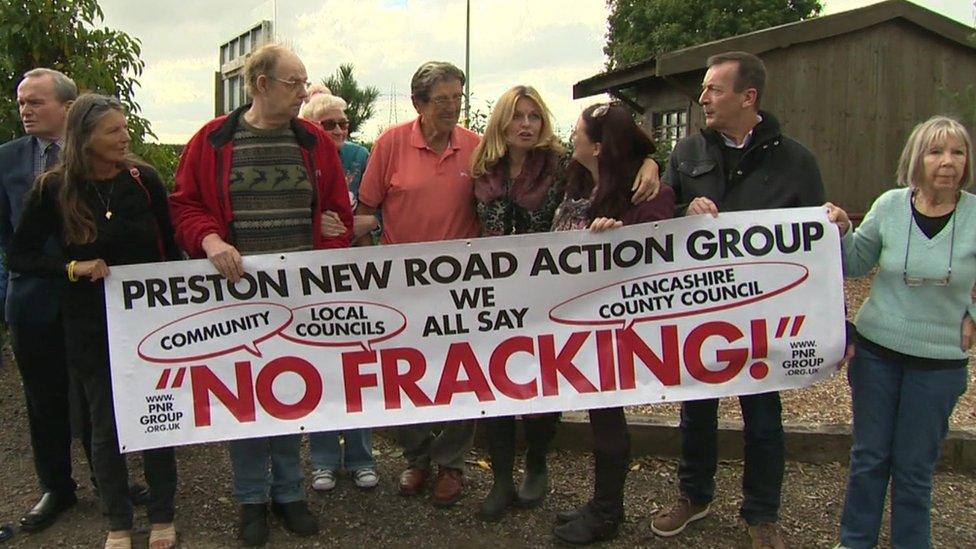
Local campaign groups say the decision is a denial of local democracy
However Lee Petts, from Lancashire for Shale, said the decision was "excellent news for Lancashire's businesses and our future prosperity".
"We believe today's decision means that Lancashire is now back on track for the future investment and employment opportunities that would flow from a successful shale gas industry in the county."

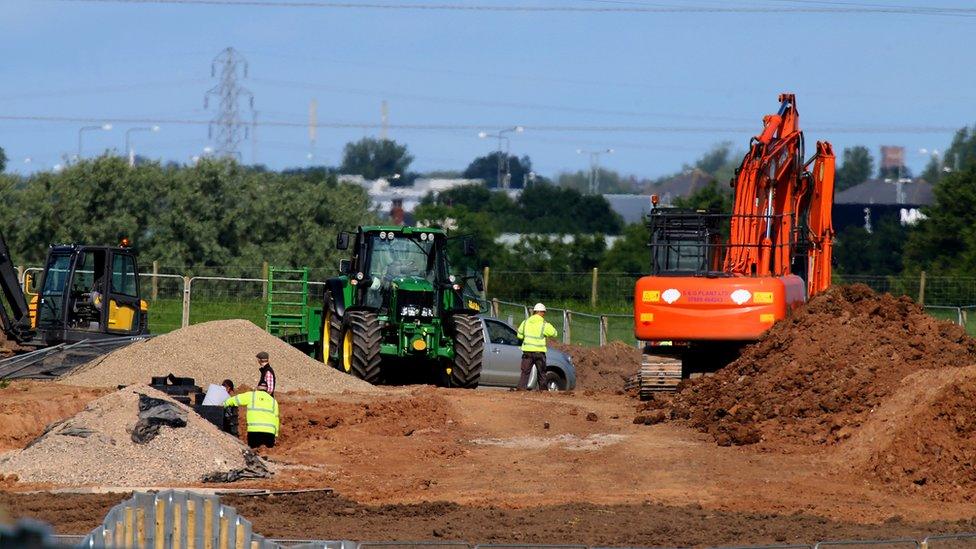
Lancashire County Council had refused Cuadrilla's applications
Analysis: Judy Hobson, BBC North West environment correspondent
This decision was never about fracking. For those against it, that argument has already been lost. The government wants a shale gas industry and on a big scale.
This was a planning issue. The government has ruled that the proposed fracking site at Preston New Road is perfect for test fracking.
In agreement with local planning officers, the secretary of state didn't think the other site, Roseacre Wood, met the planning criteria.
Whatever the reasons for Thursday's decision, it is significant. Cuadrilla wants to carry out unconventional fracking - that means drilling wells vertically and horizontally. It's never been done before on mainland Britain.
Using the latest technology, the company says huge amounts of gas could be extracted with relatively little impact above ground.
Cuadrilla expects to begin fracking at the end of 2017. Anti-fracking campaigners could delay or even stop that happening by asking for a judicial review.
They'd have to prove this decision was arrived at in an unlawful manner, and it's a costly process. But residents in Lancashire know it's more than likely their area is the testing ground for a future industry.

Drilling companies believe trillions of cubic feet of shale gas may be recoverable from beneath parts of the UK and more than 200 onshore exploration licences have been awarded to energy companies.
In 2011, all fracking was suspended in the UK after it caused earthquakes near Blackpool. The ban was lifted in 2012.
More productive
It is not the first time fracking has been approved since the ban was lifted - but it is the first to involve horizontal drilling.
In horizontal fracking, the well is turned horizontally at depth to extract gas from a layer - or layers - of shale rock. Horizontal drilling can extend for 1km (1,100yd)
It is seen as far more productive than conventional vertical drilling, which goes directly through the seam and reaches a smaller area.
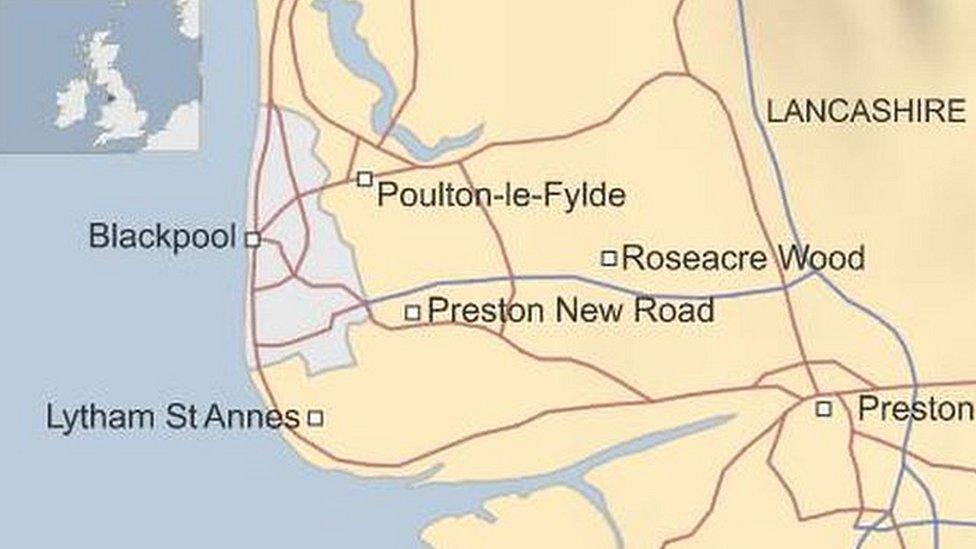
The Little Plumpton site at Preston New Road is situated between Blackpool and Preston
In May, North Yorkshire County Council approved an application by Third Energy to vertically extract shale gas at a site near Kirby Misperton in Ryedale.
In Wales the UK Government has plans to devolve fracking licences to the Welsh Government, and has decided not to make fracking decisions in the country in the meantime.
The Welsh Government is opposed to fracking and, ahead of the licensing powers being granted, has told councils they must refer such planning applications to ministers in Cardiff Bay if they want to approve them.
- Published5 October 2016

- Published6 October 2016
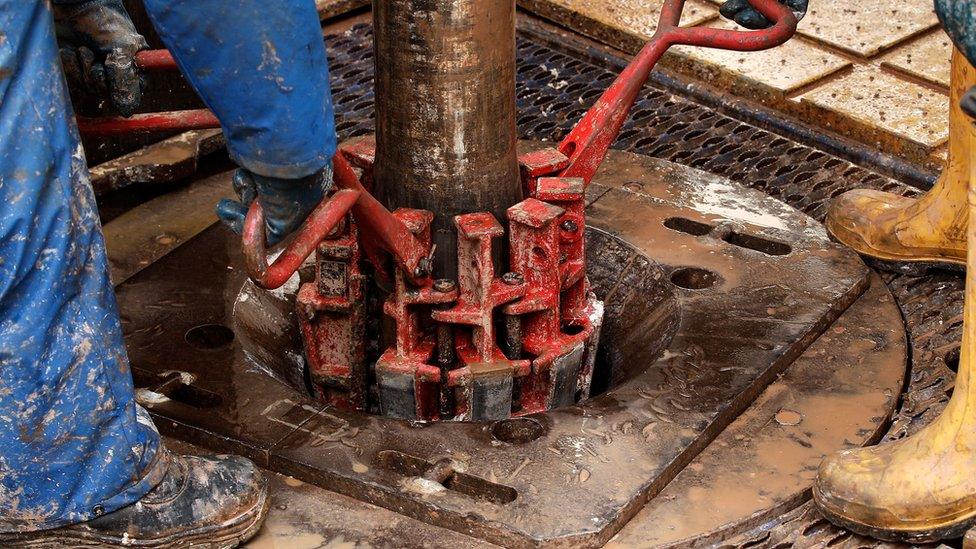
- Published6 October 2016
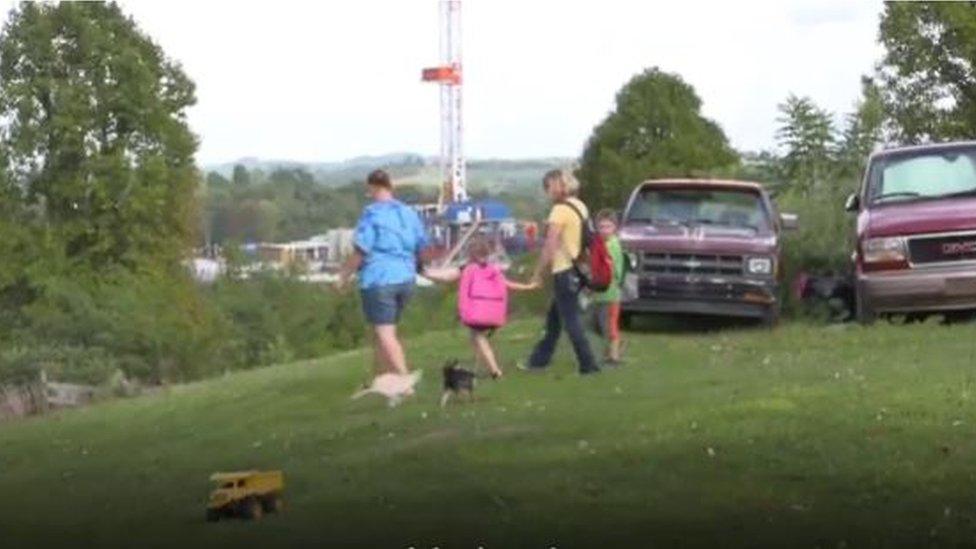
- Published6 October 2016
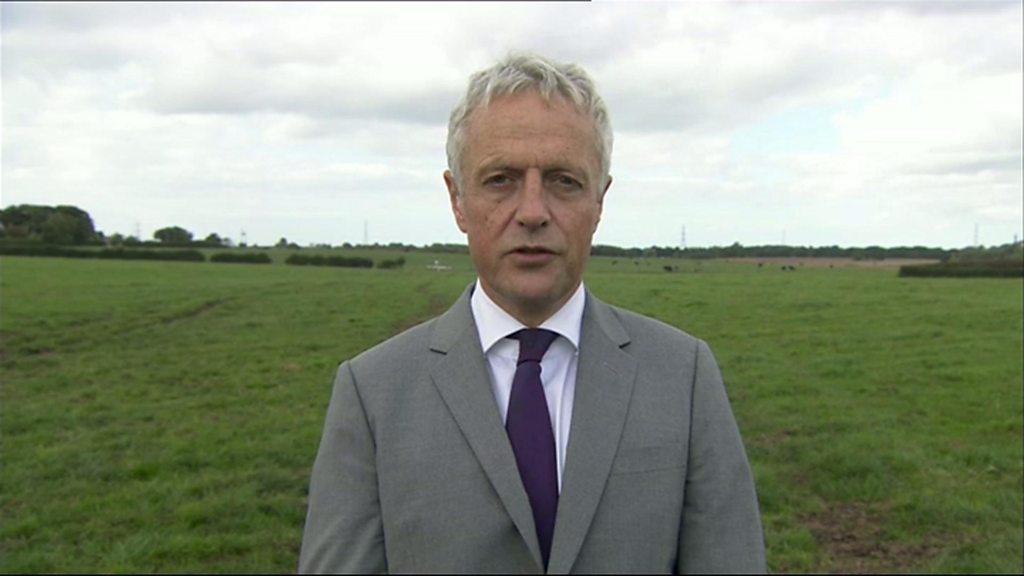
- Published6 October 2016
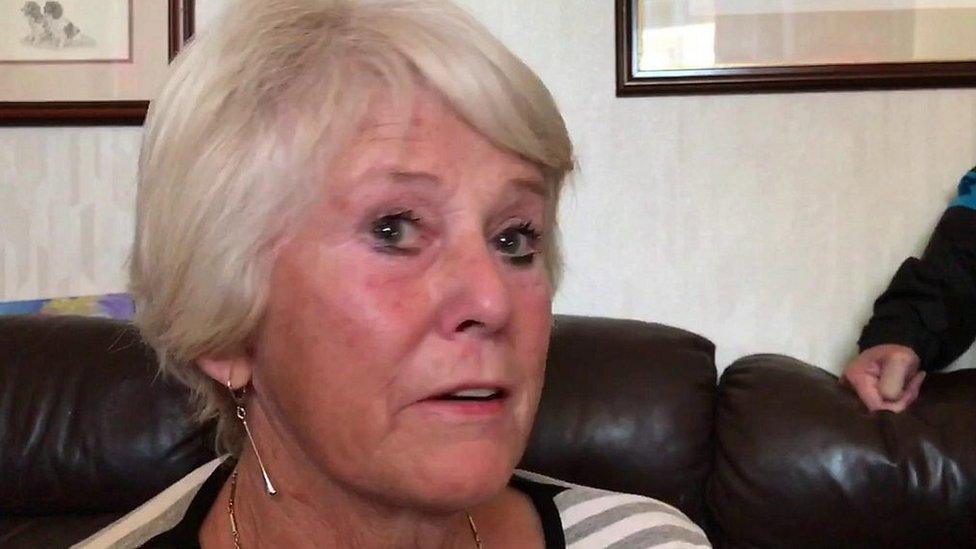
- Published4 July 2016
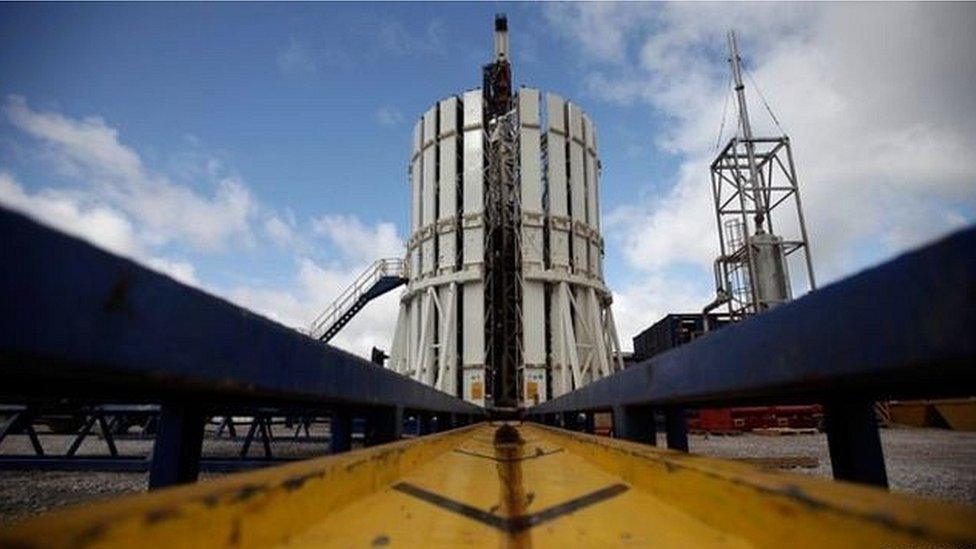
- Published27 May 2016
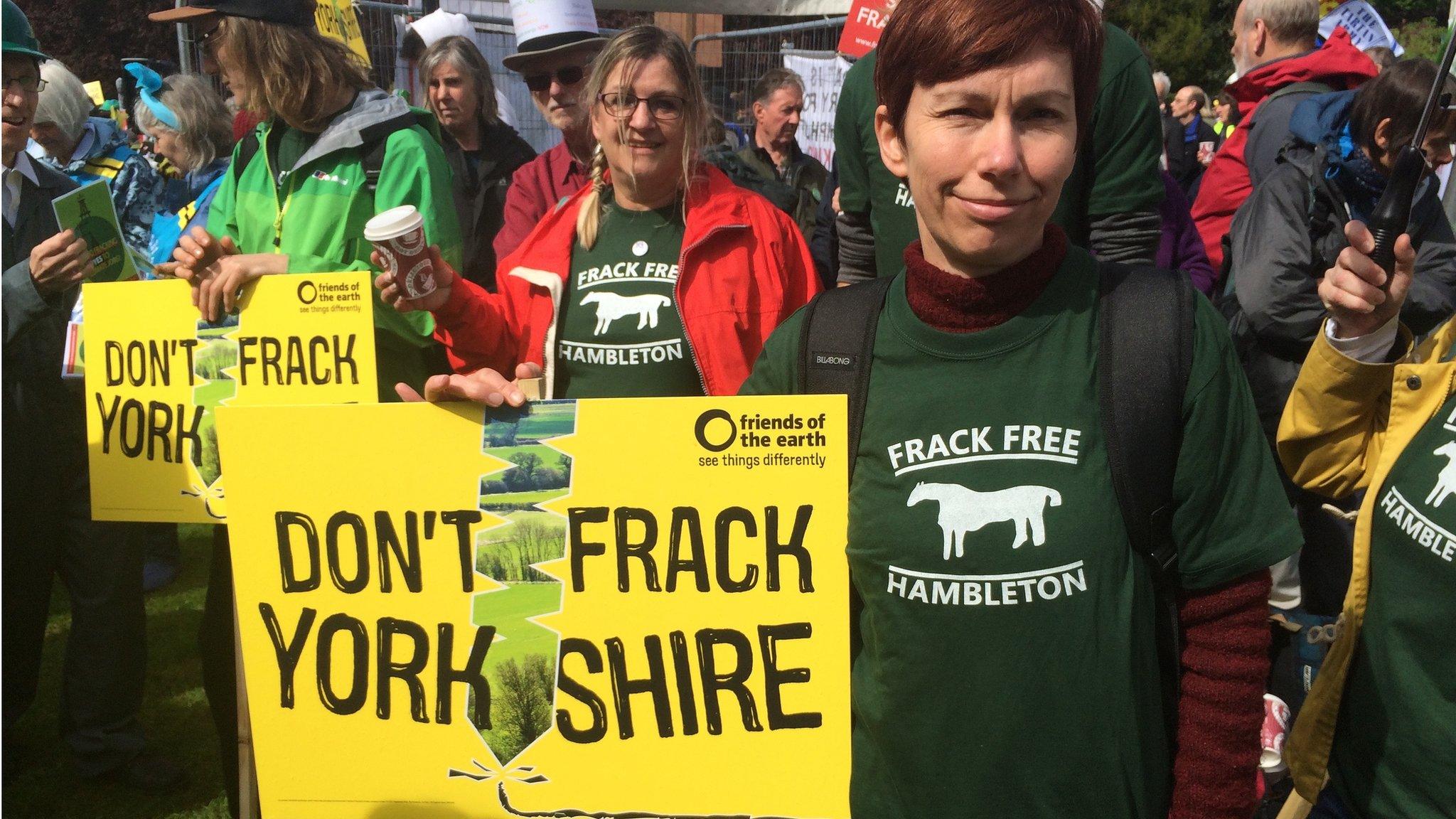
- Published16 March 2016
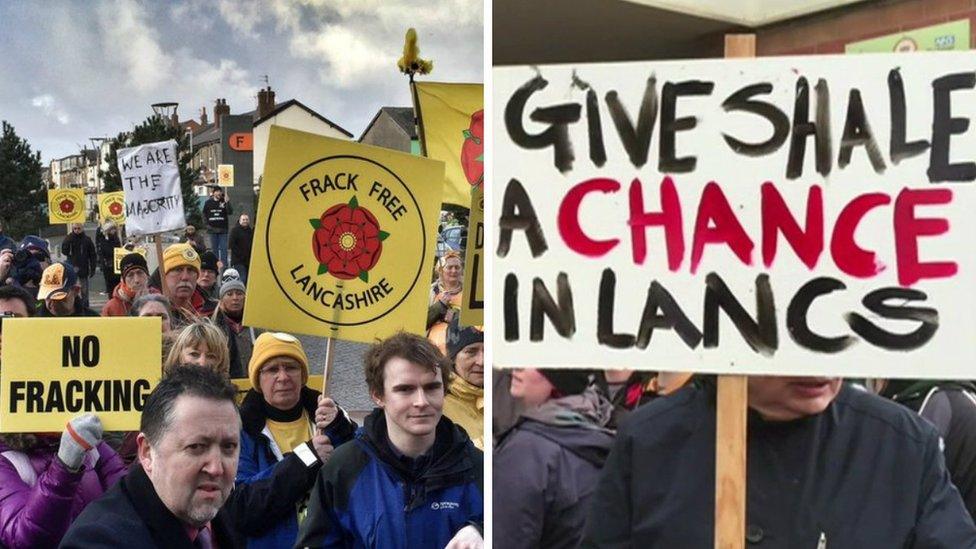
- Published9 February 2016
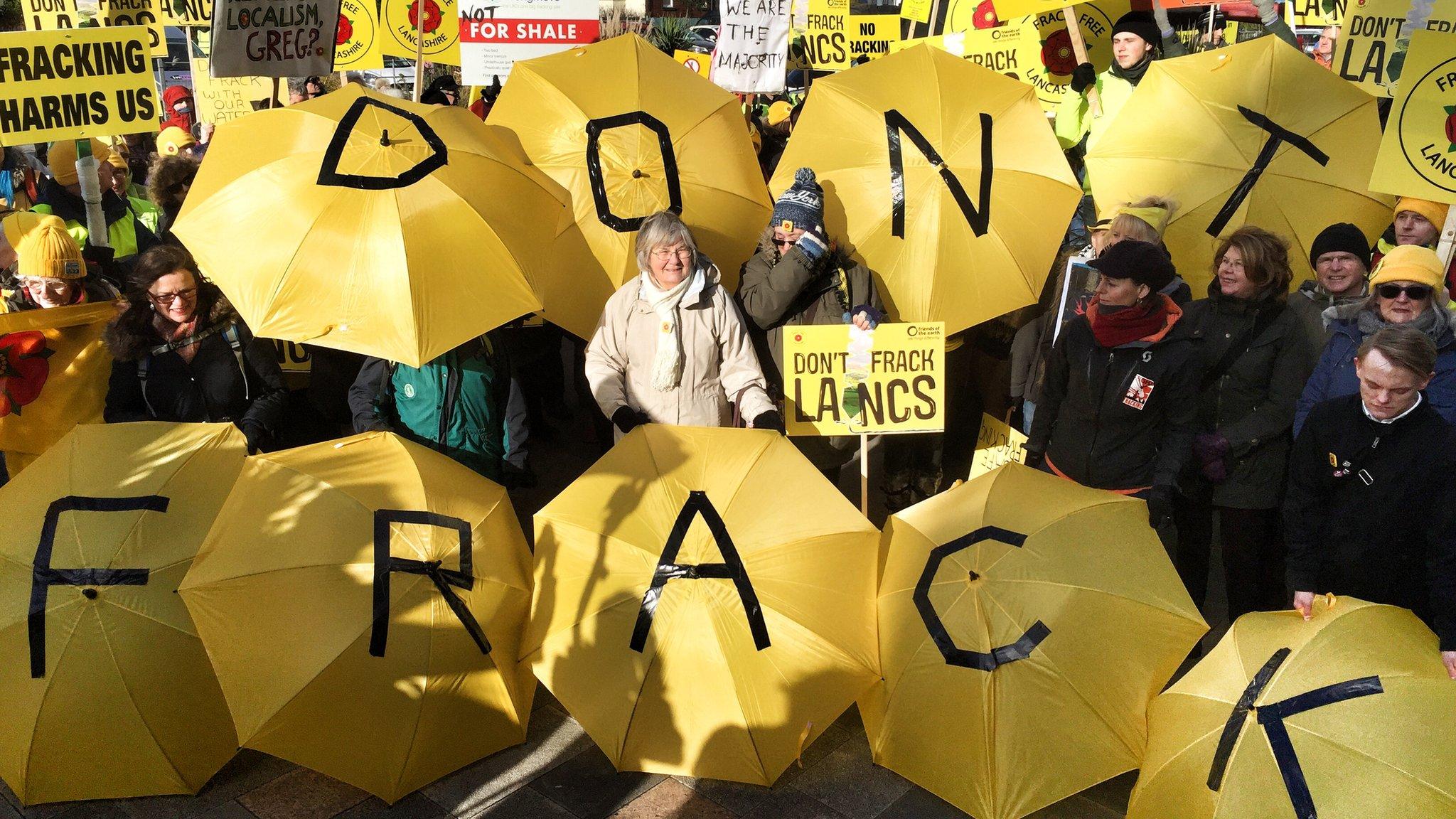
- Published23 June 2015
